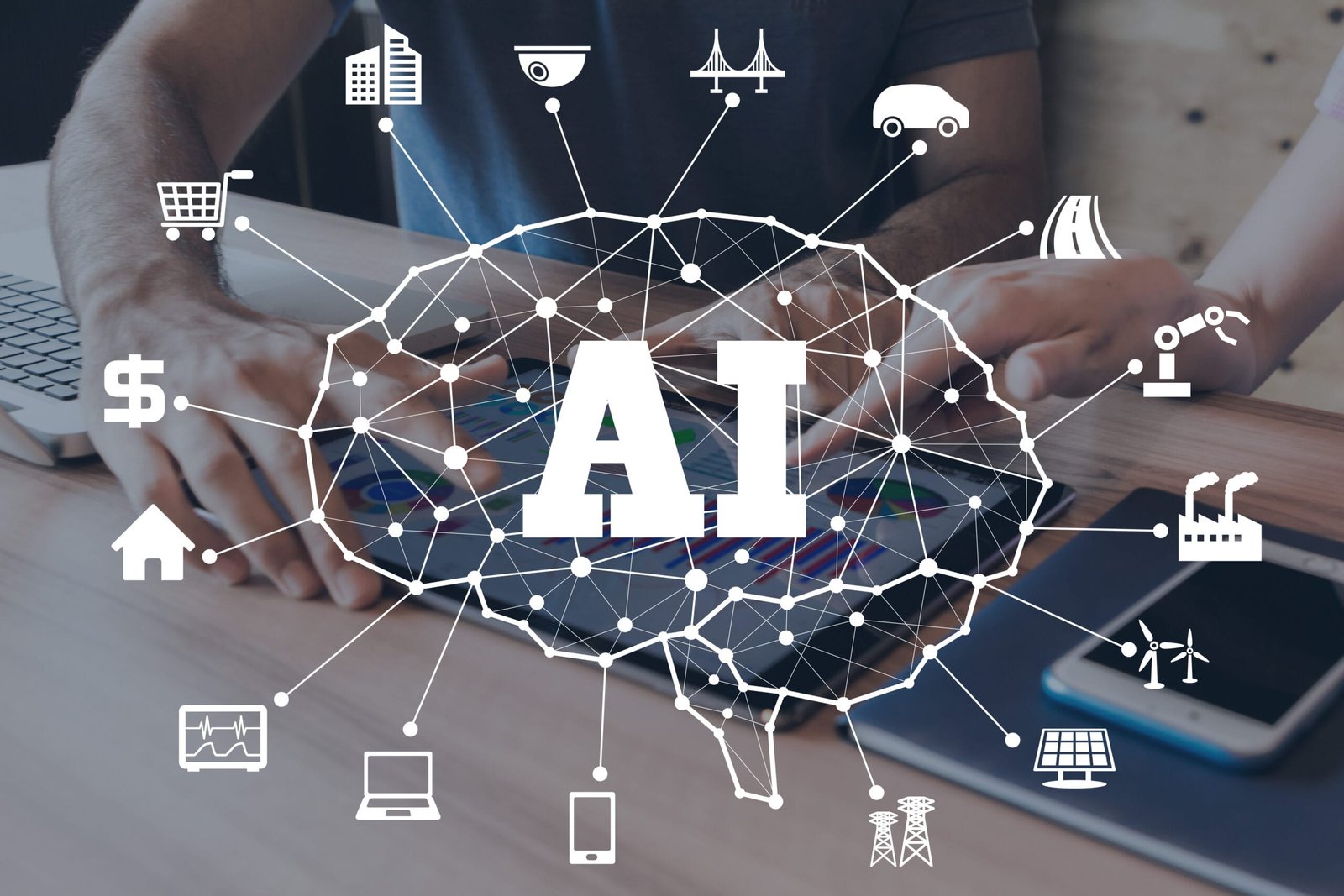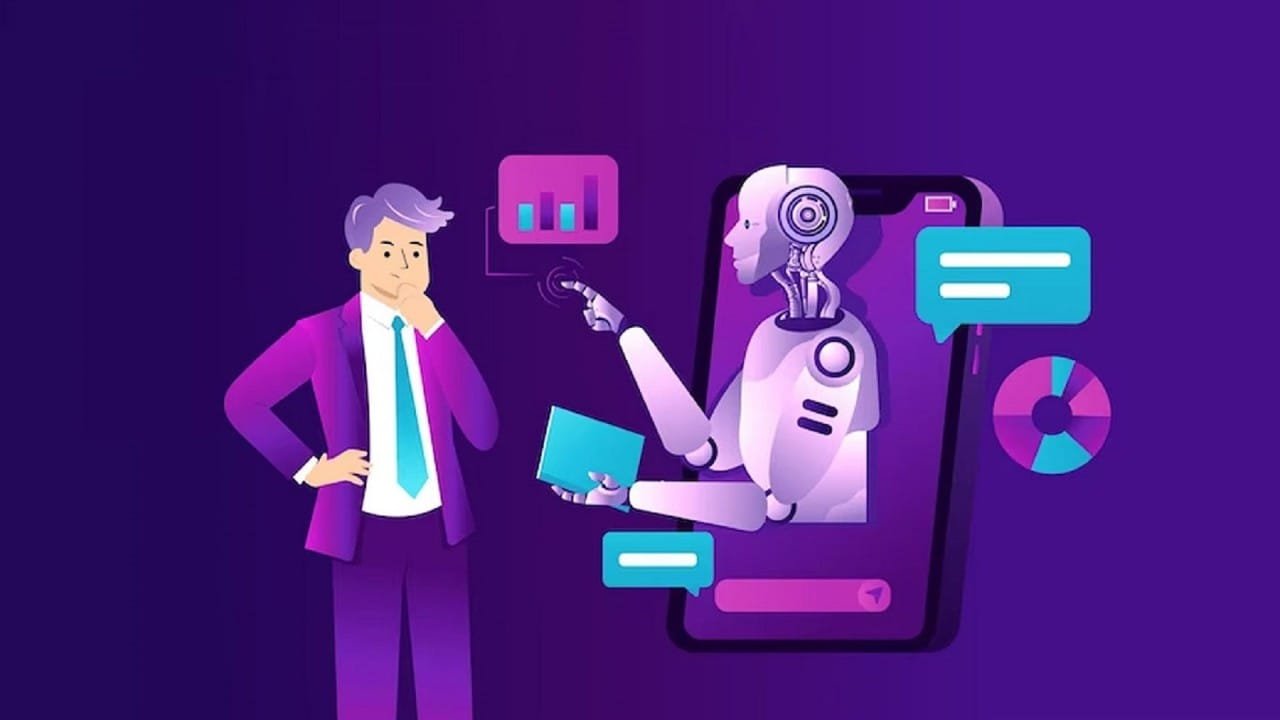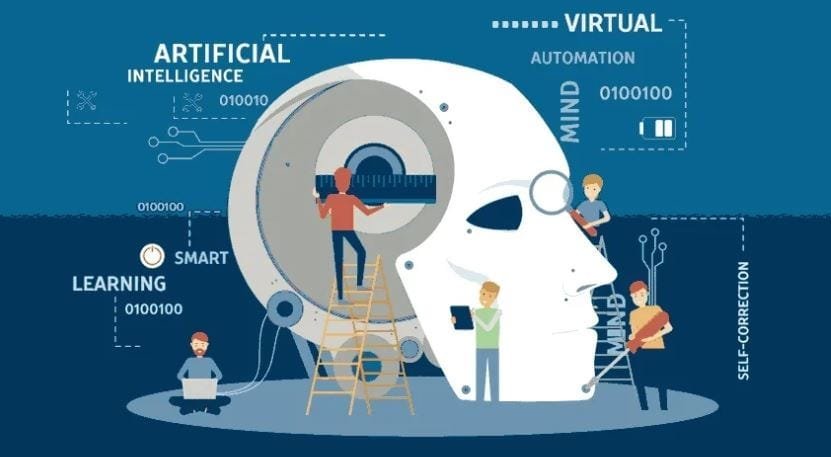In today’s fast-paced digital marketing landscape, artificial intelligence (AI) has emerged as a game-changing force, reshaping how businesses connect with their audiences. From AI-powered chatbots offering instant customer support to machine learning algorithms predicting consumer behavior, the potential of AI marketing is vast. AI is no longer a futuristic concept—it’s now a central pillar of modern digital marketing strategies, driving smarter decision-making and delivering personalized experiences.
By harnessing the power of AI, businesses can automate tasks, analyze vast amounts of data, and enhance customer interactions in real-time. Whether you’re targeting a specific audience through social media ads or optimizing email marketing campaigns, artificial intelligence ensures that marketing efforts are more targeted, efficient, and impactful.
As the digital marketing landscape continues to evolve, understanding the role of AI and its applications becomes essential for staying competitive and relevant in the market.
The Rise of AI in Digital Marketing
The rise of AI in digital marketing has revolutionized the way businesses approach their marketing strategies. As technology has advanced, AI tools have evolved from basic automation systems to powerful, intelligent platforms capable of analyzing large amounts of data, predicting trends, and enhancing customer engagement. Marketers now have access to a wide range of AI-driven tools that can assist with everything from content creation to social media campaigns, email marketing, and even customer service.
These AI tools help businesses make informed decisions, optimize digital marketing campaigns, and measure their effectiveness in real-time. As AI continues to evolve, its impact on marketing strategies grows stronger. By leveraging AI for tasks such as predictive analytics, customer segmentation, and data analysis, digital marketers can refine their marketing strategies to deliver more relevant content and drive higher conversion rates.
With AI as a powerful tool at their disposal, marketers are equipped to not only meet current demands but also anticipate future trends and consumer behavior, setting themselves up for success in an increasingly competitive market.
How AI is Revolutionizing Digital Marketing Campaigns?
AI is transforming digital marketing campaigns by enabling marketers to deliver highly personalized and targeted content to consumers at the right time. Traditional marketing efforts often fall short when trying to engage the right audience with the right message.
However, AI-driven marketing campaigns use machine learning and data analytics to understand customer preferences, behavior, and purchase history, ensuring that marketing messages resonate on a deeper level. For instance, AI-powered tools can analyze consumer data to deliver personalized product recommendations, boosting conversion rates and customer satisfaction.
Moreover, predictive analytics helps digital marketers forecast future trends and customer behavior, allowing for more effective marketing strategies. By automating tasks such as A/B testing, optimizing ad copy, and selecting the most effective ad placements, AI streamlines digital marketing processes, saving time and resources.
The result is a more efficient and impactful marketing campaign that drives engagement, enhances customer loyalty, and ultimately maximizes ROI. With AI in their toolkit, marketers can take their digital marketing efforts to the next level, ensuring long-term success in an increasingly competitive landscape.
Natural Language Processing (NLP) in Content Creation and Marketing
Natural Language Processing (NLP) is a transformative AI technology that plays a crucial role in content creation and SEO. By enabling machines to understand, interpret, and generate human language, NLP allows digital marketers to streamline content generation, ensuring it is relevant, engaging, and optimized for search engines.
AI tools powered by NLP can analyze large datasets of user-generated content, social media trends, and search queries to uncover topics that resonate with the target audience. For content marketing, NLP aids in creating SEO-friendly blog posts, website copy, and email subject lines that are tailored to customer preferences.
Moreover, NLP can enhance the personalization of content, making it more relevant to individual users, thereby increasing engagement rates and conversion rates. Whether it’s generating blog posts, refining web pages, or optimizing email campaigns, NLP is a powerful tool for delivering high-quality content that drives traffic and boosts brand visibility.
Enhancing Customer Segmentation and Personalization with AI
AI has revolutionized customer segmentation and personalization, enabling businesses to tailor their marketing efforts to individual customer needs. By analyzing vast amounts of customer data, including browsing history, purchase behavior, and demographic details, AI can create more accurate customer segments and refine product recommendations.
These insights allow businesses to deliver highly personalized experiences, ensuring that the right message reaches the right audience at the right time. For example, AI can suggest relevant products to customers based on their preferences, past purchases, and interactions with the brand. This level of personalization not only improves customer satisfaction but also boosts conversion rates and customer loyalty.
Moreover, AI-driven tools continuously learn and adapt to evolving customer behavior, allowing for dynamic personalization that grows with the customer. By leveraging AI for customer segmentation, digital marketers can optimize their marketing campaigns, deliver more relevant content, and foster deeper connections with their audience.
Predictive Analytics: Shaping the Future of Marketing Strategies
Predictive analytics, powered by AI and machine learning, is transforming the way businesses approach their marketing strategies. By analyzing historical data and identifying patterns in consumer behavior, predictive analytics enables digital marketers to forecast future trends and customer preferences with remarkable accuracy.
This data-driven approach helps businesses make informed decisions about where to allocate marketing resources, when to launch campaigns, and what content to prioritize. With AI-driven predictive models, marketers can anticipate customer needs, personalize messaging, and optimize marketing campaigns to increase engagement and conversion rates.
Machine learning further enhances the power of predictive analytics by continuously refining its algorithms as new data is collected, ensuring that marketing strategies stay relevant and effective. The valuable insights gained from predictive analytics allow digital marketers to stay ahead of the competition, enhance customer experiences, and maximize return on investment. In an ever-changing digital landscape, predictive analytics offers businesses the tools to make smarter, data-driven marketing decisions that lead to sustained growth and success.
Leveraging AI for Social Media Marketing and Campaigns
AI is revolutionizing social media marketing by providing digital marketers with tools to optimize social media campaigns and better understand user behavior. AI-powered platforms analyze vast amounts of social media data, allowing marketers to track engagement, identify trends, and segment audiences based on specific interests and behaviors. With AI, social media campaigns become more targeted, personalized, and effective, helping brands reach the right audience with the right message at the right time.
AI also enhances the ability to predict user behavior, allowing marketers to adjust their content and ad strategies for maximum impact. From automating content creation to optimizing social media ads, AI tools simplify campaign management and increase ROI. Whether it’s understanding customer sentiments, identifying influencers, or improving social media ads, AI’s role in social media marketing is integral to driving successful campaigns and boosting customer engagement.
Improving Customer Experience and Satisfaction with AI
AI plays a vital role in improving customer experience and satisfaction by providing personalized, real-time interactions. By analyzing customer data, AI tools can predict individual preferences, helping businesses deliver tailored content, recommendations, and offers that resonate with their audience.
Additionally, AI-powered chatbots and virtual assistants enhance customer support by providing instant responses to inquiries, resolving issues, and offering solutions around the clock. This level of personalized service leads to higher customer satisfaction and fosters loyalty. AI also helps businesses gather feedback and analyze customer sentiment, allowing them to address concerns proactively and improve their products or services.
With AI-driven insights, businesses can enhance the overall customer experience, ensuring that their marketing efforts align with customer expectations. By automating routine customer service tasks and providing more personalized interactions, AI enables businesses to build stronger relationships with their customers and deliver exceptional service that keeps them coming back.
AI and the Future of Customer Service
AI-powered tools are transforming the future of customer service by improving efficiency and enhancing the customer experience. From chatbots that handle inquiries 24/7 to machine learning algorithms that predict customer issues before they arise, AI is automating many aspects of customer service. AI tools can quickly analyze customer data, identify trends, and provide actionable insights, allowing businesses to anticipate needs and offer proactive solutions.
By reducing response times and ensuring consistent, accurate information, AI is elevating the standard of customer support. Furthermore, AI can personalize interactions by referencing historical data, improving service quality, and making customers feel valued. With AI, businesses can also streamline internal processes, allowing customer service teams to focus on complex queries while automation handles routine tasks.
As AI continues to advance, it will play a crucial role in providing seamless, scalable customer service experiences that improve satisfaction and foster long-term loyalty. The use of AI in customer service ensures that businesses remain competitive in a landscape where customer expectations are constantly evolving.
Automation: AI’s Role in Reducing Repetitive Tasks
AI is a game-changer when it comes to automating repetitive tasks in digital marketing efforts, allowing marketing teams and digital marketers to focus on more strategic and creative aspects of their work. By automating tasks such as data collection, A/B testing, email segmentation, and social media posting, AI tools significantly reduce the manual effort required to manage campaigns. For instance, AI-powered platforms can schedule and publish content across multiple channels, analyze customer responses, and adjust campaigns in real time.
This automation streamlines processes, boosts efficiency, and minimizes human error, enabling digital marketers to improve productivity and optimize marketing efforts. Furthermore, by offloading routine tasks to AI, marketing teams can allocate their time and resources to high-impact activities such as content creation, customer engagement, and campaign optimization. The result is a more agile marketing operation that delivers better results while saving valuable time and reducing costs.
AI and Content Marketing: Creating Relevant Content at the Right Time
AI is transforming content marketing by enabling digital marketers to create relevant content at the right time, ensuring higher engagement and better customer experiences. AI-powered tools can analyze large datasets, including user behavior, search trends, and customer preferences, to identify the topics that resonate most with a target audience. Using this data, AI can generate SEO-optimized blog posts, engaging email subject lines, and ad copy that speaks directly to consumer interests.
With AI, marketers can personalize content to meet the specific needs and preferences of individual customers, increasing the likelihood of conversions. For example, AI-driven platforms can optimize email marketing campaigns by crafting personalized messages that are delivered to the right customers at the optimal time, based on historical behavior and interaction patterns. Furthermore, AI helps streamline content creation by automating routine writing tasks, freeing up time for marketers to focus on high-level strategy. By delivering content that is both relevant and timely, AI elevates content marketing efforts, driving better engagement and long-term success.
AI in Data Analysis: Extracting Actionable Insights
AI plays a crucial role in transforming data analysis into actionable insights for marketing campaigns. By leveraging machine learning and advanced data analytics, AI tools can analyze vast amounts of customer data, including browsing history, purchase behavior, and social media interactions, to identify key trends and patterns.
These insights enable digital marketers to make informed decisions, refine marketing strategies, and enhance targeting. For example, AI can segment customers based on their preferences and predict future behaviors, allowing marketers to tailor campaigns and optimize content for specific audience groups.
Additionally, AI tools can continuously monitor real-time data, providing marketers with actionable insights that help them adjust campaigns on the fly to maximize impact. By integrating AI into data collection and analysis, marketers gain a deeper understanding of their audience, which leads to more personalized and effective marketing campaigns. Ultimately, AI empowers businesses to drive better results by ensuring that marketing decisions are based on data-driven insights rather than intuition or guesswork.
The Ultimate Impact of AI on Digital Marketing
The transformative power of AI in digital marketing is undeniable. From automating repetitive tasks to providing actionable insights, AI tools have taken marketing strategies to the next level. By leveraging AI for customer segmentation, predictive analytics, and content personalization, businesses can create highly targeted campaigns that resonate with their audiences, boost engagement, and drive conversions.
AI also empowers digital marketers to optimize social media campaigns, enhance customer experiences, and improve customer service, all while saving time and resources. As AI continues to evolve, the future trends in digital marketing will undoubtedly include even more advanced AI-powered tools, such as generative AI and deep learning, which will further refine marketing strategies and streamline processes.
To stay ahead of the competition, businesses must embrace AI-driven solutions, positioning themselves for success in the ever-evolving digital marketing landscape.



